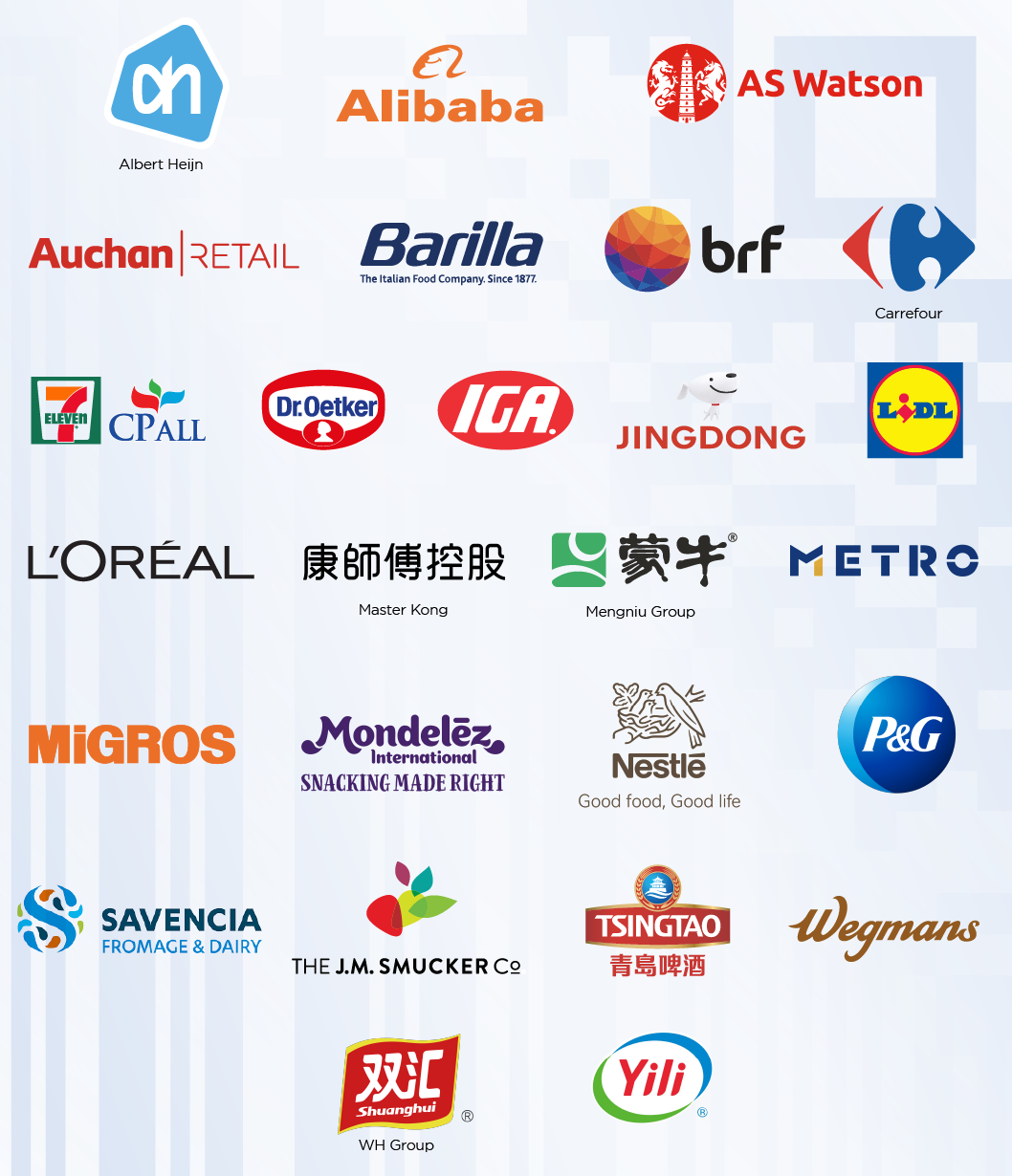Leading companies in the retail and consumer goods industries support the transition to QR Codes with GS1 standards
“Consumers demand more information about the products they’re purchasing, regulators require the disclosure of more information and there’s an ongoing need to more effectively track and trace products through the supply chain. We can resolve this with 2D barcodes with GS1 standards inside – a single barcode that has the power to provide all the information consumers need and desire, improve traceability through the supply chain, and scans at checkout.”
Jon R. Moeller,
Chairman of the Board, President and Chief Executive Officer, Procter & Gamble
50 years after the barcode was first scanned, leaders from the world’s biggest companies sign an Industry Global Joint Statement calling for the transition to QR Codes with GS1 standards to revolutionise the consumer experience

On the 50th anniversary of the first barcode scan, over 20 industry champions, including marketplaces such as Alibaba, retailers like Carrefour and brand owners like Procter & Gamble, are calling for the global adoption of QR Codes with GS1 standards. These QR Codes are expected to completely revolutionise the consumer experience.
Since the first scan in 1974, the collaboration between retailers and manufacturers through GS1 has led to the widespread adoption of the original barcode. This technology is currently the trusted universal method for product identification, with over 1 billion items carrying barcodes that are scanned more than 10 billion times daily, enhancing supply chain efficiencies worldwide.
Revolutionising the consumer experience
Unlike traditional barcodes, QR Codes powered by GS1 can connect consumers to extensive amounts of product information to elevate their experience – including usage and recycling instructions, safety, nutritional information, and industry certifications.
With information easily accessible via smartphones, this opens a range of new possibilities for consumers, manufacturers, and retailers alike – providing all the information consumers need and desire, improving traceability, and driving efficiencies through the supply chain, while still enabling scanning at checkout.
QR Codes powered by GS1 should be widely adopted by the end of 2027
The companies who have joined forces with GS1 are a combination of leading brand owners, manufactures and marketplaces that have a combined market value of over $1.5 trillion USD. These companies operate in over 160 countries and reach billions of consumers worldwide – paving the way for the project’s success.
The goal of this collaboration is that by the end of 2027 QR Codes with GS1 standards should be widely adopted.
To achieve this, manufacturers should start implementing QR Codes with GS1 standards on product packages, while retailers should ensure their point of sale (POS) scanners are equipped to read the new barcodes. The shift has already begun with the new technology being tested in 48 countries across the world, representing 88% of the world’s GDP.
The list of industry champions calling for the transition to QR Codes with GS1 standards
The 22 companies that signed the Industry Global Joint Statement ahead of the release date on 26 June 2024 are the following: Alibaba (Taobao & Tmall Group), AS Watson Group, Barilla Group, Carrefour, 7- Eleven (CP ALL Thailand), Dr. Oetker, IGA, JD.com Group (Jingdong), Lidl International, L’Oréal, Master Kong (Tingyi Holding Corp.), Mengniu Group, Metro, Migros Ticaret A.S., Mondelēz International, Nestlé, The Procter & Gamble Company, Savencia Fromage & Dairy, The J.M. Smucker Co., Tsingtao Beer Group, WH Group (Henan Shuanghui Development Co.), and Yili Group.
Shortly after the Industry Global Joint Statement was made public, other companies have joined this initiative, such as Albert Heijn, the largest supermarket chain in the Netherlands and part of Ahold Delhaize, Auchan Retail International, a French multinational retail group that operates in 12 countries, BRF, a Brazilian food leader present in 120 countries and Wegmans, a US retail giant with over 110 stores and 53.000 employees.
The press release from June 26, incluing industry quotes and media contact details is available here.
There are several types of next generation 2D barcodes. The QR Code is the most widely used in retail, while the GS1 DataMatrix is commonly used in healthcare.
To learn more about QR Codes powered by GS1, please visit this page.






